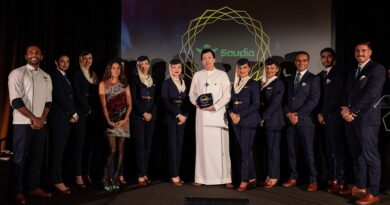“Poly Scientific Ayurveda Can Offer Sustainable Health Solutions to the world,” Says Dr Polisetty
In May this year, the Central Council for Research in Ayurvedic Sciences (CCRAS), an autonomous body under the Union Ministry of Ayush, launched ‘Pragati-2024‘ (Pharma Research in AyurGyan and Techno Innovation). The primary goal of this initiative is to provide a collaborative platform for research in Ayurveda. This move also reflects the government’s focus on Ayurveda and highlights the growth potential of the Ayurvedic industry. With the influx of innovations and startups, the sector is poised for significant expansion and technical integration.
The pioneer of Poly Scientific Ayurveda, Dr. Ravishankar Polisetty
“Effective Ayurvedic practices are rooted in rigorous research and can offer safe and effective health solutions by blending traditional practices with modern technological advancements,” says Dr Ravishankar Polisetty, a former cardiac surgeon and the pioneering force behind Poly Scientific Ayurveda (PSA).
Explaining what lies at the core of PSA practices, Dr Polisetty adds, “PSA sets a new standard for effective healthcare by going beyond diagnostic treatments to address the root causes of illnesses with preventive care consisting of lifestyle modifications and natural therapies.” He says the integration of technology and Ayurveda makes it a more comprehensive approach to patient care. For instance, AI and Machine Learning can improve the accuracy of traditional Ayurvedic diagnostics, enabling personalised treatments that address both symptoms and underlying imbalances.
One of Dr Polisetty’s groundbreaking innovations is Docture-Poly™, a unique wearable device that merges Ayurveda with advanced AI and ML protocols. According to Ayurveda, an individual’s health depends on maintaining a perfect balance between the three doshas-Vata, Pitta, and Kapha (VPK). Docture-Poly™ assesses these doshas by collecting biological signals from a person’s fingerprint. The data is then transmitted via Bluetooth to an app on a smartphone and the file is sent to the server, where it is analysed using Python and AI algorithms, and the results are sent to the user’s smartphone.
“Based on the provisional diagnosis using the VPK 42 fingerprint analysis, the device generates a personalized dietary regimen to balance the individual’s doshas and promote optimal health. It also customises exercise plans according to the person’s unique constitution. Further, it provides non-invasive estimates of blood biochemistry, including Random Blood Sugar, HbA1c, and Lipid Profile levels,” explains Dr Polisetty.
A member of the administrative panel of the ANGCC GLOBAL, a global organisation dedicated to building healthy cities worldwide, Dr. Polisetty says that ‘Smart Health Cities‘ can benefit from data-driven, holistic healthcare as it can gather crucial information and offer comprehensive solutions by synergising traditional systems like Ayurveda with modern medicine.
He also informs that PSA is now widely adopted in many European countries, opening new windows of opportunity for Ayurvedas global expansion. “Integrating PSA into existing healthcare systems in European nations will also strengthen trade relations between India and these countries. PSA is very effective for managing end-stage diseases. We have successfully demonstrated the revival of organs in end-of-life patients. Hence, integrating it can help EU nations reduce their high annual healthcare costs, particularly in geriatric care,” concludes Dr Polisetty, who recently represented India and gave a detailed presentation at the UK Parliament’s House of Commons on the expansive potential of traditional Ayurveda in global healthcare.



